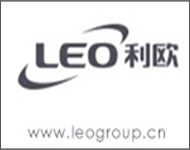- Groundbreaking Ceremony Marks Start of Sh50 Billion MTRH Construction Project
- TANROADS-World Bank Alliance Powers Massive Road and Airport Upgrades Across Tanzania
- Kenya Breaks Ground on Sh5 Billion China-Kenya International Commerce Center in Nairobi
- Construction Begins on $2.15 Billion Uvinza–Musongati Railway Project
- Kenya Secures Chinese Funding for Sh5 Billion Nithi Bridge Reconstruction
- Construction Nears for ELCT Facility Backed by Samia’s 250 Million Boost
- KeNHA Kicks Off Construction of Major Kenya-South Sudan Road Project with AfDB Support
- Tanzania Government Allocates 100 Billion Shillings for Bridge Constructions in Lindi
- $46 Million Deal Signed for Crucial Isiolo-Mandera Road Construction Project
- Tanzania Government Set to Sign Agreement for Dodoma Stadium Construction
Off Grid Electric lights a safer path for Tanzanians
You could call it a lightbulb moment. Erica Mackey had relocated from the US after graduating from the University of California, Los Angeles with a degree in ecology and evolutionary biology, to work with an aid agency in east Africa helping to set up mobile clinics and train rural health workers.
Upon arrival in Tanzania, however, it was obvious the most pressing need among local people was cheap, reliable electricity. Most Tanzanian homes are lit using kerosene lamps, generating fumes that are as damaging as smoking two packets of cigarettes a day.
Families often store this fuel on the floor in fizzy drink bottles, which creates a further risk of someone accidentally scorching their internal organs by taking a toxic drink from the containers.
“It seemed unfathomable that millions of people live like this,” Ms Mackey recalls, adding that she felt it was “incredibly unfair” that some of the world’s poorest people pay the most for the dirtiest energy.
The irony is that east Africa has an abundance of the most powerful energy source available to us: the sun. With modern technology its power could be harnessed at a much lower cost than liquid fuels, Ms Mackey reasoned, so she sought out a masters programme where she could develop a business plan.
Oxford’s Saïd Business School, whose Skoll Centre for Social Entrepreneurship provides specialist support to start-ups that aim to do something good for society, seemed the ideal choice. Ms Mackey only applied there and fortunately gained a place on its MBA programme.
Soon after arriving on campus, Ms Mackey met Xavier Helgesen and they started building a solar energy business, Off Grid Electric.
“He was a talented entrepreneur, eager to start focusing his attention on energy in Africa,” Ms Mackey says of her co-founder. “I knew how to make ideas work there.”
They quickly brought in a third partner, Joshua Pierce, who knew something about building energy systems and became chief technology officer.
The Skoll Centre was particularly helpful in developing the company’s business plan, Ms Mackey says. “We were able to access an unbelievable network of social innovators and financiers that helped propel us forward in the early days.”
Business model
The sales technique was modelled on the parties run in the homes of suburban housewives by Avon, the US cosmetics business.
Instead of handing round make-up samples, Off Grid Electric reps explain how to operate the company’s solar panels, which are designed in the US and built in Asia. They then rig them up to power the lights to demonstrate how the system works.
Explaining the benefits of cheap and readily available electricity to people in some of the world’s poorest communities is an easier pitch than trying to foist fancy cosmetics on richer westerners, Ms Mackey notes.
“Women would tell me over a cup of chai that being able to turn on a light at the flick of a switch brings pride to their household.”
Off Grid Electric now provides affordable solar power to low-income communities in Tanzania, and raised $70m in 2015 in order to extend their reach to a million customers in the country.
The company employs more than 800 people full time, primarily in sales and regional service teams, who travel door-to-door in rural Tanzania and Rwanda to connect and maintain the solar energy equipment.
These teams are now installing more than 10,000 solar units in homes and businesses every month. The goal, over the next three years, is to create 15,000 jobs across east Africa.
Local inspiration
Ms Mackey recently returned to California to give birth to her first child, but the 32-year-old was back in Tanzania a few weeks later to work on the front line of the business.
Her Australian-born partner, whom Ms Mackey met in Tanzania, is also an entrepreneur, having created a plastics recycling business in the country.
Although Tanzania can be a tough place to build a company, Ms Mackey says she finds the local people stimulating, especially now she has a child.
“There are a lot of mothers in Tanzania balancing a work life with families,” Ms Mackey says. “That means I have a lot of great role models.”
Source: www.ft.com
Posted on : 06 Apr,2016
Buildmart is Africa's leading directory and market news website for the building and construction industry | Kenya | Tanzania | Rwanda | Ethiopia
Exhibitions In Africa
- 27th Buildexpo Kenya 2026
KICC, Nairobi, kenya
08 - 10, July 2026 - 11th Afriwood Kenya 2026
KICC, Nairobi, kenya
08 - 10, July 2026 - 11th LightExpo Kenya 2026
KICC, Nairobi, kenya
08 - 10, July 2026 - 10th Minexpo Africa 2026
KICC, Nairobi, Kenya
08 - 10, July 2026 - 27th Buildexpo Tanzania 2026
Diamond Jubilee Expo Center, Dar-es-Salaam, Tanzania
23 - 25, Sep 2026 - 10th Afriwood Tanzania 2026
Diamond Jubilee Expo Center, Dar-es-Salaam, Tanzania
23 - 25, Sep 2026 - 10th LightExpo Tanzania 2026
Diamond Jubilee Expo Center, Dar-es-Salaam, Tanzania
23 - 25, Sep 2026 - 10th Minexpo Tanzania 2026
Diamond Jubilee Expo Center, Dar-es-Salaam, Tanzania
28 - 30, Oct 2026





















